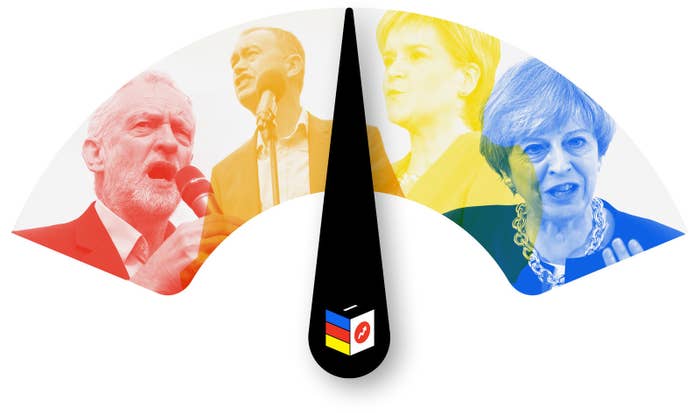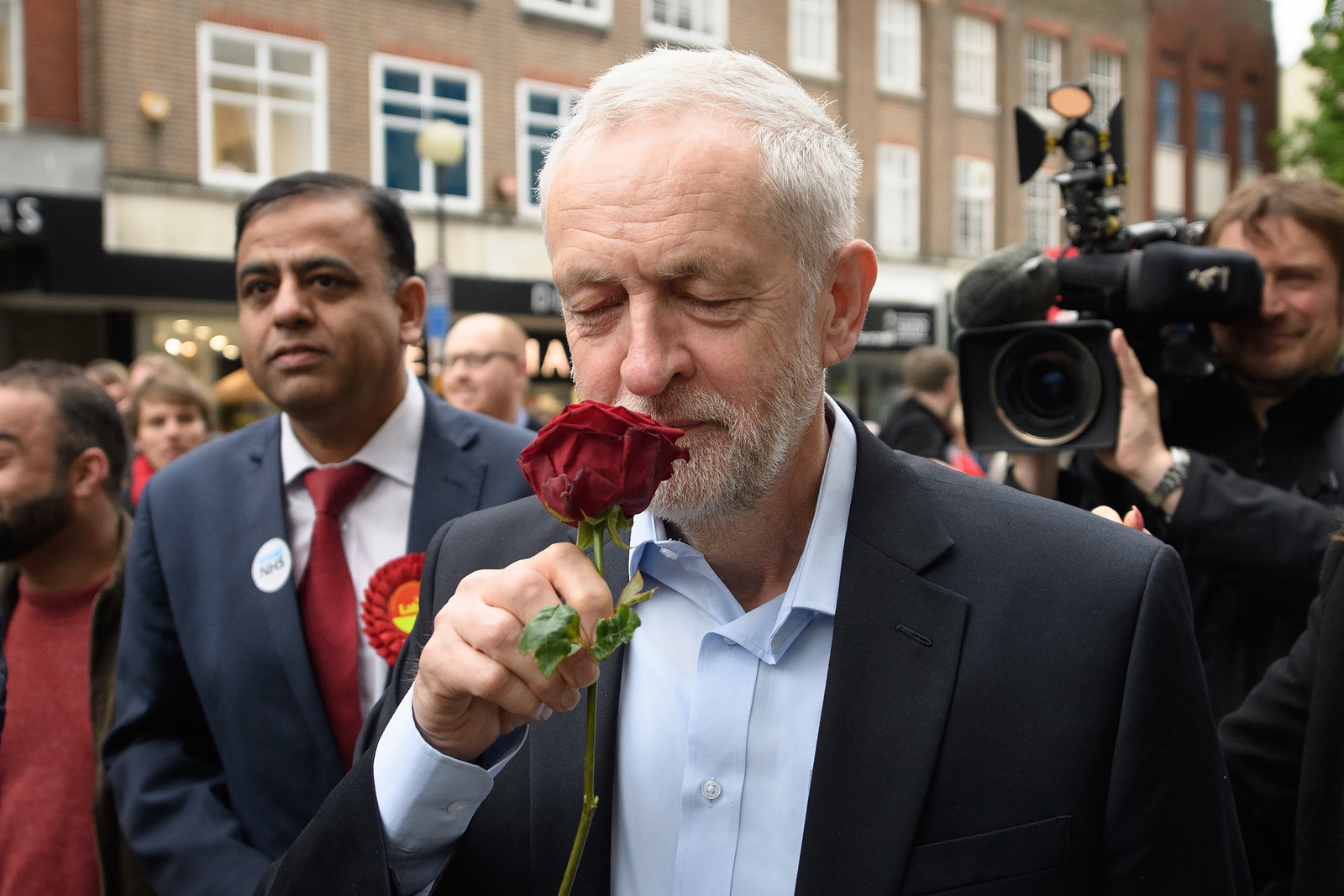
Political debate on Facebook is being dominated by dozens of incredibly viral news stories in support of Jeremy Corbyn, despite the Conservatives holding a massive lead in national opinion polls, according to the first edition of the BuzzFeed News Social Barometer.
The most shared stories about the general election during the first fortnight of the campaign have been overwhelmingly positive about the Labour leader. By contrast, the only stories regarding Theresa May and the Conservatives that have gone viral are negative.
The Social Barometer attempts to track which election-related stories are being shared by users on Facebook and will be updated weekly throughout the election. The methodology behind the ranking has been published online and the findings will be updated weekly – with an attempt to categorise the sentiment of each piece.
Many of the most viral stories are from non-mainstream sites, showing the growing influence of the new group of alt-left media outlets that have surged in popularity since the election of Corbyn as Labour leader.
However, it also suggests that many Conservative supporters are reluctant to publicly share positive articles about their party on social media – but are very happy to vote Tory in the privacy of the polling booth.
The split may also reflect the different age profile of the two parties' supporters and the extent of their social media usage.
The most popular political article during the first two weeks of the election campaign was entitled "How many of Jeremy Corbyn's policies do you actually disagree with?" from the blog AnotherAngryVoice and was shared almost 80,000 times.
This was closely followed by a guide to anti-Conservative tactical voting hosted on the image-sharing site infogr.am. A post on The Canary with the headline "In only 72 hours, young people show they could have a nasty surprise in store for Theresa May" also made the top five, which was completed by two links – one liveblog and one comment piece – from The Guardian.
In total, six of the 20 most-shared election-related links on Facebook during the first fortnight of the election were from media sources that sit well outside the mainstream media.
The pro-Labour bias of people who share political news on Facebook is even clearer when you look at the most-shared articles directly referring to the party. Straight news stories announcing Labour policies, such as a piece by The Independent – "Jeremy Corbyn says Labour will introduce four new bank holidays" – also performed very strongly.
Of the top 20 Labour-related links only one, Diane Abbott's disastrous interview on LBC regarding police funding, can be considered negative.
The barometer also suggests animosity is a much stronger incentive than sympathy. Because if there's one thing British political Facebook users love more than sharing pro-Corbyn articles, it's sharing anti-Conservative pieces. Of the top 20 articles relating directly to Theresa May and her party, 18 were explicitly negative.
Not one positive story about the Tories made the list of the top 20 most-shared pieces about the party, even as the party made substantial gains in local elections and maintained a healthy poll lead.
The findings suggest that while Facebook is helping to drive millions of people towards political content, it is still not reaching the mass numbers required to swing elections, with the risk that many of its users may be living in echo chambers or filter bubbles of their own creation.

The willingness of Corbyn supporters to share articles supportive of the Labour leader could also be driving the editorial agenda of news outlets who know that writing positive stories about the party is a reliable way to gain readers – and advertising revenue – during the election.
Corbyn's team have increasingly pinned their hopes on reaching audiences directly, ditching many right-wing newspapers completely from the campaign trail and seeking new ways of interacting with the public. But the Conservative poll lead suggests the support of right-leaning mainstream media outlets continues to be massively influential. In addition, rather than relying on supporters to manually share stories, the Conservatives have increasingly focused on spending millions of pounds on social media advertising to directly buy space on users' news feeds, as well as spending heavily on adverts in old fashioned print.
Sharing a link on social media is often prompted by strong emotional reactions to stories and headlines, and the Social Barometer found that sites without an overt political bias struggled to make much of an impact on Facebook.
As a result politics stories on the BBC – one of the world's biggest and best-resourced news websites – have often been less viral than links from left-wing news startups such as The Canary.
Millions of internet users still continue to directly visit the home pages of sites such as BBC News, meaning this is not a complete picture, but as users spend longer and longer on social media, it does suggest sites that aspire to neutral headlines and more balanced takes on the news could struggle to maintain their audience.


